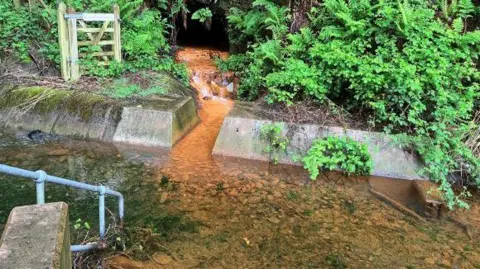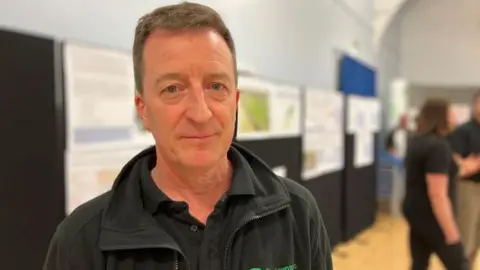Old lead mine metal pollution to be cleaned up
 BBC
BBCPolluted water flowing out of an old lead mine and contaminating a river and lake is to be cleaned up.
The Environment Agency (EA) wants to build a series of ponds to remove heavy metals from Gategill near Keswick in Cumbria.
The government has committed to halving the total length of rivers polluted by harmful metals from abandoned mines by 2038.
EA senior technical advisor Dr Hugh Potter said the pollution was having "an adverse impact on water quality and river wildlife".
Metals including cadmium, zinc and iron are in water flowing out of Woodend Low Level adit, an old tunnel dug by miners to drain the mine.
Dr Potter said: "Our monitoring has shown that 25km of watercourse is polluted by the contaminated groundwater coming from the abandoned Threlkeld mines."
This is affecting the watercourse from Gategill Beck to Bassenthwaite Lake which, along with the River Derwent and its tributaries, are designated Sites of Special Scientific Interest.
Downstream of the mine, levels of zinc in the beck can exceed the safe limits for river wildlife by up to 2,500 times.

The proposed treatment scheme will capture the metals before they enter the beck and then put the improved water back into the watercourse.
The work is part of the Water and Abandoned Metal Mines programme, a partnership between the EA, the Coal Authority and the Department for Environment, Food and Rural Affairs to tackle water pollution caused by historical metal mining across England.
Building the treatment ponds is expected to take several years.
Follow BBC Cumbria on X (formerly Twitter), Facebook and Instagram. Send your story ideas to [email protected].
